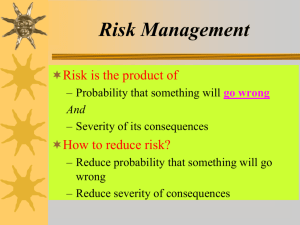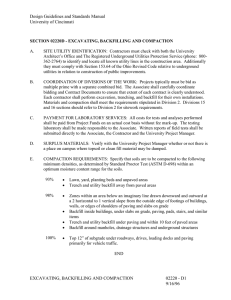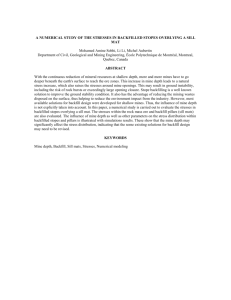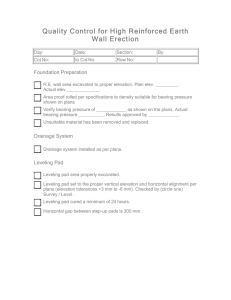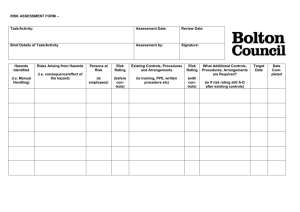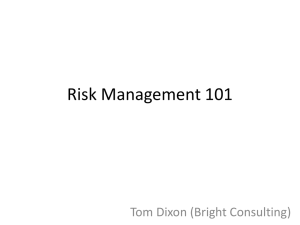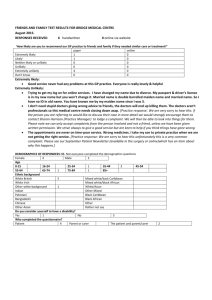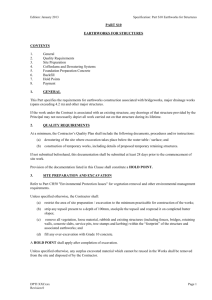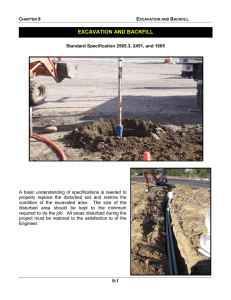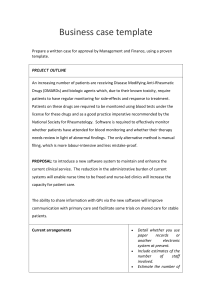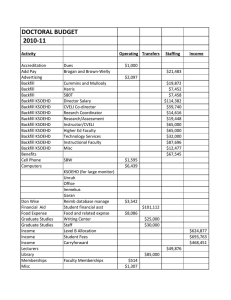Risk Assessment Worksheet
advertisement
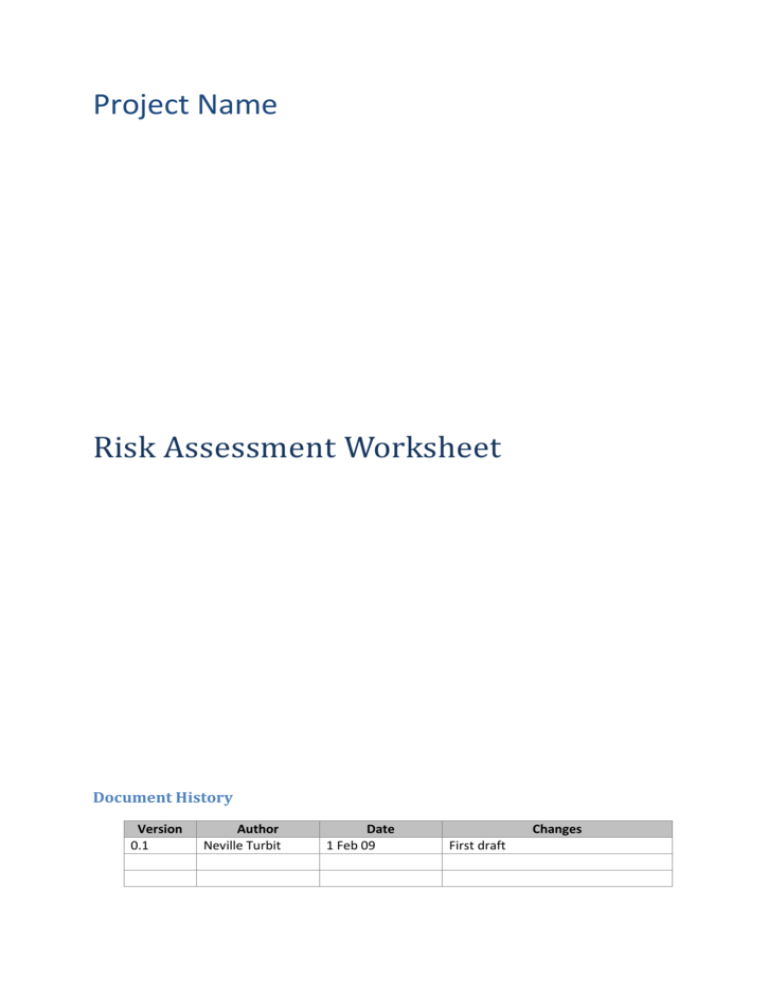
Project Name Risk Assessment Worksheet Document History Version 0.1 Author Neville Turbit Date 1 Feb 09 Changes First draft Table of Contents Guidelines ............................................................................................................................................... 3 Impact ................................................................................................................................................. 3 Probability ........................................................................................................................................... 4 Priority................................................................................................................................................. 4 Actions ................................................................................................................................................ 4 Risk Name: .............................................................................................................................................. 6 Rating: ................................................................................................................................................. 6 Strategy: .............................................................................................................................................. 6 Assigned To: ........................................................................................................................................ 6 Worst Case: ......................................................................................................................................... 6 Actions: ............................................................................................................................................... 6 Comments: .......................................................................................................................................... 7 15-Feb-16 Risk Assessment Page 2 of 7 Guidelines The following guidelines will assist in preparing a risk assessment. Impact The following examples will help to identify how you would select the impact of the risk. Impact Example Catastrophic High Medium Low Very Low 15-Feb-16 Major supplier closes down and no alternatives available causing selected software to be unsupported Company is sold and all projects are cancelled/deferred Key resource who is the only person with the business knowledge leaves the organisation and we cannot complete requirements Old hardware fails and cannot be repaired causing the system to be unavailable Services supplied by key supplier are inadequate and delays occur Serious industry dispute effects availability of business users which delays project Strategies being developed are different to corporate strategies resulting in a solution that does not support our corporate direction Business users not available as frequently as required so design is compromised Project team cannot be located centrally resulting in miscommunication Key member off through illness and a part of the project has to be reassigned Non crucial software does not fully meet expectations and needs to be modified causing a delay Some information is missing when talking to users so gaining their input is difficult Some delays in finding permanent equipment for contractors means they will have to ‘hot desk’ Training is delayed for project staff so we have to rearrange the work Staff taking sick day delays weekly reporting Printers not available means we have to print to another floor Time taken to locate files on the server causes inefficiency Risk Assessment Page 3 of 7 Probability Probability is rated as follows Probability Almost Certain Highly Likely Likely Unlikely Very Unlikely Priority Priority is a combination of impact and probability. Use the following grid. L M H C C Highly Likely (HL) L M H H C Likely (L) L M M H C L L M H H L L L M H Very Low (VL) Low (L) Moderate (M) High (H) Catastrophic (C) Probability Almost Certain (C) Unlikely (UL) Very Unlikely (VU) Impact Priority Key: Low Medium High Critical Depending upon the size or criticality of the program/project, all risks prioritised as Critical or High will require the planning of a response and possible mitigation Actions There are four possible actions: 15-Feb-16 Risk Assessment Page 4 of 7 Accept: Acceptance of a “Risk's” consequences can be active (e.g. by developing a contingency plan to execute should the risk event occur) or passive (e.g. by accepting delay if some events take longer than anticipated). Transfer: Share or assume the consequences of the “Risk”. This can be with the customer or perhaps a third party, usually a supplier. While this does not necessarily reduce the impact, it can reduce the probability Avoid: Eliminate a specific threat (usually be eliminating the cause) or find alternative paths to achieve the same results (thereby eliminating the “Risk”.) The Project Team can never eliminate all “Risk”, but specific “Risks” can often be eliminated. Mitigate: Reduce the probability of the “Risk” eventuating and/or impact of the “Risk”. 15-Feb-16 Risk Assessment Page 5 of 7 Risk Name: Instructions: Replace “Risk Name” with the risk. This makes it easy to see a summary of all identified risks in the table of contents. Repeat for every risk although you might only take action on your top priority risks. Example: Resources are diverted away from the project and the project is delayed Rating: Example: Now After Mitigation Impact High Medium Probability Almost Certain Likely Priority Critical Medium Strategy: Example: Mitigate: Devote people full time to the project. Backfill their normal roles Assigned To: Example: Project Manager Worst Case: Instructions: The purpose of identifying the worst case is to think through what else might go wrong even after we address the risk. It allows us to determine the Impact and Probability after mitigation. It might also identify further action that can be taken. Example: The people recruited to backfill the roles do not work out and the project team members are required to support them, or go back to their old job. Actions: Example: 15-Feb-16 Risk Assessment Page 6 of 7 Action Responsible Date Identify staff requiring backfill Project Mgr 1/2/08 Identify backfill Sponsor 15/2/08 Provide backfill Sponsor 1/3/08 Comments: Example: We probably require four positions to be backfilled. This will mean getting at least two external resources. 15-Feb-16 Risk Assessment Page 7 of 7

